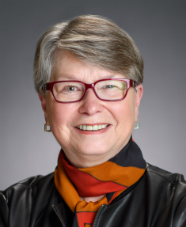News
From the Executive Director: Belonging
 “Welcome home” is the ubiquitous greeting alumni hear when returning to campus for homecoming reunions. I’ll admit it felt odd to hear that when I returned to my undergraduate campus recently. It didn’t feel like home when I was a student — perhaps at best a home away from home? — and it certainly didn’t feel like home so many years later. And yet I have roots in that place, strongly influenced by the ethos of the university as epitomized in the honor code we wrote out and signed on every paper, quiz, and exam.
“Welcome home” is the ubiquitous greeting alumni hear when returning to campus for homecoming reunions. I’ll admit it felt odd to hear that when I returned to my undergraduate campus recently. It didn’t feel like home when I was a student — perhaps at best a home away from home? — and it certainly didn’t feel like home so many years later. And yet I have roots in that place, strongly influenced by the ethos of the university as epitomized in the honor code we wrote out and signed on every paper, quiz, and exam.
Judging from the popularity of home genetic tests and genealogy programs, people of all generations seem to be engaged in searching for their roots of late. Whether by subscribing to an online service or tracking down records tucked in a family Bible, the quest to learn more about who we are and where we came from is a compelling feature of the human journey.
While I leave the family tree research to my son, some of the books I’ve been drawn to this year have a personal connection, not only to my scholarly interests but to my roots. I stumbled upon the work of Professor Nora Krug, of The New School, while watching the National Book Critics Circle Awards on Book TV. Winner of the 2018 award in autobiography, Krug’s graphic memoir Belonging: A German Reckons with History and Home (Scribner, 2018) narrates a young German woman’s quest to understand her cultural connection to the horror of the Holocaust amid her family’s silence about a war her grandparents lived through. In German, the title of Krug’s book is Heimat, which means home, or place that first forms us. Turning the pages of this remarkable book feels like being invited into a scrapbook whose compiler searches for answers about her family’s past, her roots, herself.
My resonance with Krug’s work mirrored the origins of my own study of the Holocaust, as it was my ethnic identity as a German-American that first drew me to the subject. While conducting research in graduate school, a Jewish survivor confronted me with a question that still haunts me as we concluded an interview: “Why are you doing this?” I could only respond that I needed to understand. Though I had never visited the country from which my grandparents emigrated, my roots were there. And that country’s government had for a time committed horrific crimes against humanity. Why indeed.
Phi Kappa Phi traces its roots to Coburn Hall on the campus of the University of Maine, where one day in 1897 a student proposed to his professor that scholars (“bookworms,” he called them) deserved the same type of recognition and respect that college athletes were shown. That conversation launched an organization that has grown exponentially but has never lost its original vision to recognize academic excellence. In the years since, we have planted our roots on a multitude of college and university campuses across the country. They have borne fruit, and they are deep.